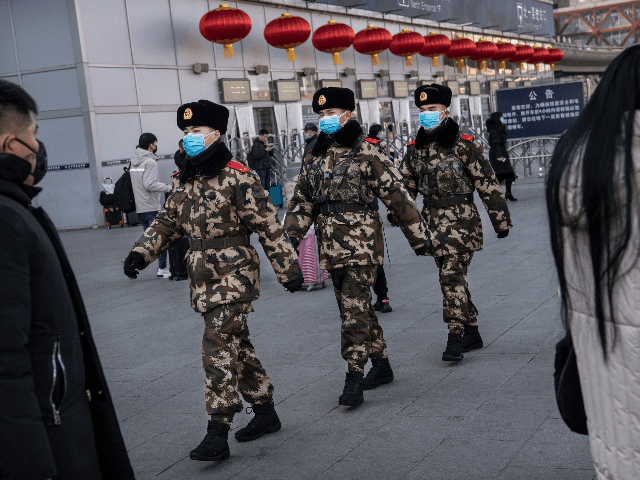Chinese doctor Zeng Guang, chief epidemiologist at the Chinese Center for Disease Control and Prevention (CCDC), praised eight Wuhan residents for giving an early warning about the dangers of the coronavirus outbreak in their city, even though they were arrested in early January for “spreading rumors” about the disease.
Zeng made these comments during an interview with China’s state-run Global Times, providing another window into the fascinating political turbulence surrounding the Wuhan epidemic. China’s authoritarian national government, desperate to regain public trust and quell mounting anger over mismanagement of the epidemic, appears to be setting up local Wuhan officials to take the fall, and perhaps make a tacit public concession that the early stages of the coronavirus outbreak were not handled well.
The Global Times noted that the eight Wuhan residents in question were arrested for posting on social media that some of the people flooding into hospitals with the new coronavirus were actually sick with acute cases of SARS, the less contagious but far more deadly viral illness that ravaged parts of China in 2003.
SARS casts a very long shadow in Chinese memory, and it has often been compared with the Wuhan virus – and not in a way that flatters the government – but there have been no confirmed cases of SARS in the current epidemic.
The Global Times interview with Zeng suggested the Communist Party wants to signal a new atmosphere of transparency and fresh emphasis on public health by applauding the Wuhan residents for raising an early alarm instead of punishing them as rumor-mongers and enemies of the state. According to the report:
“In retrospect, we should highly praise them. They were wise before the outbreak,” Zeng said, adding though that any judgment needs to be backed by scientific evidence.
Zeng’s comment followed an article from the Supreme People’s Court of China (SPC) on Tuesday, in which the top court said that the eight Wuhan residents should be “tolerated” and their act of spreading the information, if taken seriously, would have done much good to the public.
“Facts show that, although the novel coronavirus-infected pneumonia was not SARS, information released by the eight people were not entirely fabricated,” the SPC article said. The article further added that the information would have pushed the public to take preventive measures more promptly, which could have been a “fortunate thing” given the current efforts needed to contain the virus.
China’s Supreme Court on Wednesday issued a rare public rebuke to the Wuhan police for arresting the eight Wuhan residents.
“If the public had believed these ‘rumors’ at the time, and carried out measures like wearing masks, strictly disinfecting and avoiding wildlife markets … it might have been a good thing,” wrote Judge Tang Xinghua in the Supreme Court statement, closely echoing what Dr. Zeng said in his Global Times interview.
Tang warned that heavy-handed crackdowns on rumors could “become negative textbook material for weakening public trust in the government.”
The Wuhan police – perhaps sensing the large “X” painted beneath their feet and the anvil hanging by a frayed rope over their heads – objected to the Supreme Court statement by claiming they merely offered “education and criticism” to the people they detained, imposing no other punishment. This statement promptly attracted jeers from the public that the police should simply admit they were wrong.

COMMENTS
Please let us know if you're having issues with commenting.